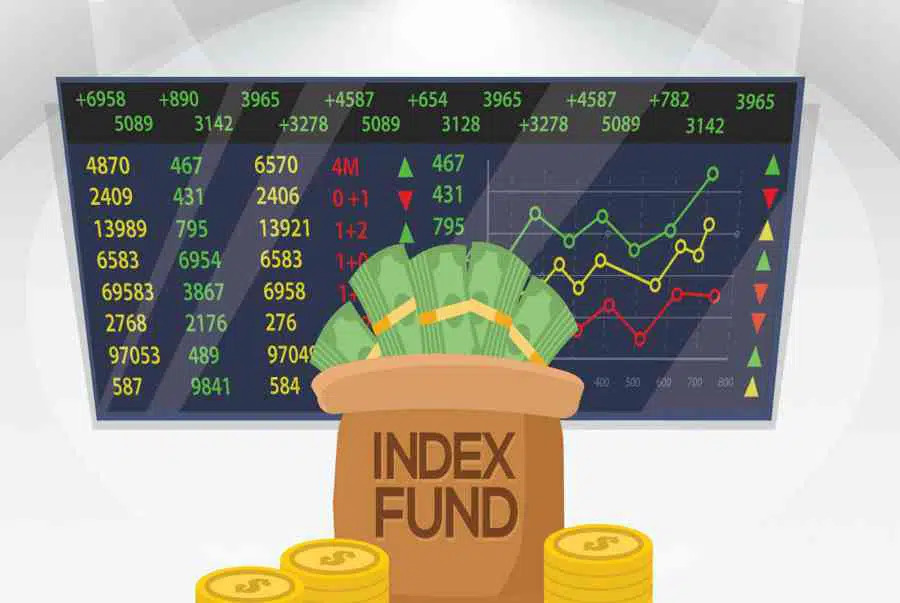In the realm of strategic investments, the index fund stands out as a pivotal tool for wealth management. As savvy investors seek best index funds to diversify their portfolios, these funds offer a reliable gateway to stable returns and risk mitigation. Operating much like an ETF, index funds mirror predetermined stock indices, attracting both local and international investors keen on navigating the Vietnamese market. Today, we unravel the intricacies of index funds, shedding light on their operational principles, and the advantages and disadvantages that define their role in the investment landscape.
Understanding Index Funds
Exploring the Essence of Index Funds
Index funds, at their core, are a financial innovation designed to align with predetermined stock indices, offering investors a straightforward path to a diversified portfolio. Operating on the principle of mirroring these indices, they eliminate the need for extensive market analysis by tracking the performance of a specific basket of stocks. This fundamental concept not only simplifies investment decisions but also aligns with the broader goal of mitigating risks.
Mitigating Risks through Diversification
One of the primary roles of index funds lies in risk management through diversification. By investing in a broad spectrum of securities, spanning various sectors and industries, these funds spread the risk associated with individual stocks. This strategic approach provides a safety net for investors, cushioning them against the impact of a poor-performing stock within the index. The result is a more stable and resilient investment, particularly appealing to those seeking a balance between risk and reward.
Equivalence of Risk and Return
Index funds offer a unique proposition in the investment landscape by establishing a direct equivalence between risk and return, closely mirroring the underlying stock index. As the index experiences fluctuations, so does the value of the fund, aligning the investor's potential return with the market's overall performance. This transparent relationship between risk and return adds a layer of predictability, empowering investors with a clearer understanding of the dynamics at play in their investment journey.
In this exploration of index funds, we've laid the groundwork for understanding their fundamental concept, their pivotal role in risk management through diversification, and the unique equivalence they establish between risk and return. Now, let's delve into the operational principles that drive these investment instruments.
Operational Principles of Index Funds
In the world of index funds, understanding their operational principles is key to making informed investment decisions. Index funds come in two primary structures - open-ended funds and ETF-type funds - each with distinct characteristics shaping their functionality.
Open-Ended Index Funds: A Closer Look
Open-ended index funds, a prevalent structure, operate with flexibility. These funds, managed by investment companies, offer simplicity in their operation. Investors can buy or sell shares at the fund's net asset value, providing transparency in transactions. However, a notable limitation lies in the absence of stock exchange listings, restricting their tradability. The repurchase of fund certificates at the end of the day further solidifies their mechanism.
ETF-Type Index Investment Funds: Trading Dynamics
On the other end of the spectrum, ETF-type index investment funds bring a different dynamic to the table. Traded on stock exchanges, these funds provide investors with tradability throughout the trading day. This characteristic sets them apart, allowing for real-time transactions similar to individual stocks. Additionally, the emphasis on transparency and disclosure in ETFs is notable, providing investors with detailed information on the fund's portfolio, benchmark index, and continuous calculation of the index.
Legal Landscape for Establishing ETF Funds in Vietnam
Embarking on the establishment of ETF funds in Vietnam requires meticulous adherence to regulatory frameworks outlined in Circular 98/2020/TT-BTC. As stipulated in Article 3, securities investment funds and securities investment companies, excluding self-managed private securities investment companies, must be under the purview of fund management companies. These entities play a crucial role in overseeing the operations of ETF funds.
Conditions for the establishment of ETF funds are clearly outlined in Article 30 of the same circular. Within 30 days from the effective date of the Certificate of registration of the fund establishment, fund management companies must initiate the trading of fund certificates for investors. This trading process is organized on a periodic basis, in line with the specifications detailed in the fund's charter, prospectus, or summary prospectus. The trading frequency, as mandated, should occur at least twice a month.
Understanding these legal requirements is paramount for anyone considering the establishment of ETF funds in Vietnam. Navigating the intricacies of Circular 98/2020/TT-BTC ensures compliance and sets the stage for a robust and legally sound ETF venture in the Vietnamese market.
Advantages and Disadvantages of Index Funds
Simplicity Leading to Accessibility
One of the major advantages of index funds lies in their inherent simplicity, which serves as a catalyst for widespread accessibility. Investors, regardless of their experience level, find these funds to be user-friendly due to their straightforward approach. The absence of the need for extensive market analysis positions index funds as an entry point for a diverse range of individuals, contributing to their popularity in the investment landscape.
Cost-Effectiveness: A Key Draw
The cost-effectiveness of index funds stands as a key draw for investors seeking efficient wealth management solutions. Unlike many other investment options, index funds often come with minimal transaction fees, making them a financially prudent choice. This characteristic aligns with the broader goal of optimizing returns, as investors can direct a larger portion of their investment capital toward the fund itself rather than being burdened by excessive fees.
Navigating Limitations: Expectations and Risks
Despite their simplicity and cost-effectiveness, index funds are not without limitations. Managing expectations is crucial, as these funds are considered a safe investment method. Consequently, expecting quick profits can be a challenge, as the stability and predictability of index funds typically lead to more gradual returns. Additionally, the risk of capital loss is inherent and influenced by economic fluctuations that impact the fund's underlying assets.
Real-Time Trading Constraints
While index funds provide stability, their real-time trading constraints differentiate them from individual stocks. Unlike stocks that can be bought or sold at any moment during market hours, index funds operate on a different rhythm. They are traded at a base price calculated once a day, adding a layer of nuance to the investor's decision-making process.
In this exploration of the advantages and disadvantages of index funds, we've highlighted their simplicity, cost-effectiveness, and accessibility, while acknowledging the importance of managing expectations and understanding the inherent risks and real-time trading constraints. Now, let's wrap up our journey with a conclusion that synthesizes the key takeaways for investors.
Final Thoughts
In the intricate world of investments, unlocking the potential of index funds requires a nuanced understanding. We've navigated the fundamentals, operational dynamics, the pros and cons that define these financial instruments. Before embarking on your investment journey, grasp the simplicity, cost-effectiveness, and limitations inherent in index funds. As you chart your path to financial success, consider the invaluable insights and assistance Viettonkin provides. Explore the possibilities with Viettonkin - your guide to navigating the Vietnamese market and making informed decisions on the best index funds to invest in.








